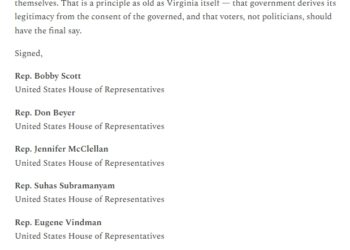 Ned Lamont, the wealthy insurgent candidate who bested Senator Joe Liebermann for the U.S. Senate Nomination in Connecticut in 2006, lost his party's Gubernatorial primary last Tuesday to former Stamfored Mayor Dan Malloy. Despite spending more than $8.6 Million (including a significant amount of money spent by Lamont himself) in his bid, Lamont lost to Malloy decisively, 58%-42%.
Ned Lamont, the wealthy insurgent candidate who bested Senator Joe Liebermann for the U.S. Senate Nomination in Connecticut in 2006, lost his party's Gubernatorial primary last Tuesday to former Stamfored Mayor Dan Malloy. Despite spending more than $8.6 Million (including a significant amount of money spent by Lamont himself) in his bid, Lamont lost to Malloy decisively, 58%-42%.
An interesting point of Lamont's defeat was his choice in campaign strategy. In Februray, Lamont hired Joe Abbey and with him, brought an entirely different-than-expected course for his campaign.
Lamont tacked decidedly to the political center, talking up “Business” and “Jobs”, and with it lost much steam from the netroots, progressives and other key groups that Lamont needed to pull off a win. In the end, Lamont was pummeled and lost by 16 points. His loss can be attributed to a variety of factors, but key among them was Joe Abbey's decidedly Centrist political strategy and its ramifications on Democratic candidates.
There have been several candidates to succsefully engineer a Centrist strategy and make it work for them. So, to make myself clear, this post isn't to bash Centrist strategies, but rather Joe Abbey's type of Centrist campaigns that lead to the defeats of Ned Lamont and Creigh Deeds.
Joe Abbey, as demonstrated from his performances in Virginia and Connecticut keeps operating under this “the base will fall in line” paradigm that has failed Creigh Deeds and has now failed Ned Lamont. Creigh Deeds (or rather Joe Abbey and the rest of his campaign operation) seemed to assume that his base would fall into play. A comment from Joe Abbey stands out from a live blog on Not Larry Sabato from mid-September 2009.
I believe that our Deeds Country strategy is an important part of our overall campaign. Furthermore, as Bob’s record against working Virginians becomes clearer – like recommending huge rate increases in SW/SS VA and saying that the power companies were “entitled” to the rate increases, you’ll see that the people in rural Virginia will see that Bob is no friend of theirs and that they can trust Creigh.
On top of that our Coordinated Campaign effort has built on the success of last year and we are seeing impressive numbers every single day from our volunteers and organizers. I am very confident that the Democratic Party will continue its grassroots domination again in 2009.– Joe Abbey, September 16, 2009
The Deeds Country bit is all well and good talking about how Creigh plans to expand the base and reach out to Moderate and Rural voters. But when Abbey talked about building “on the success of last year (2008)”, it's important to remember the success President Obama used to capture Virginia. It relied on heavy base turnout from Northern Virginia coupled with expanding said base across the state. However, Abbey pursued a strategy of “building” off this base, confidant that there was no reason to make sure the base itself was sound.
A similar effect hampered Ned Lamont. Lamont releaed a TV ad that almost brushed aside issues of ignoring the base with the “You backed me up 4 years ago!” attitude. Lamont's campaign obviously did have to answer to such questions instead of shrugging them off, as Liberal groups pointed out.
The end result was that Abbey ran both Lamont and Deeds as candidates without a base. Deeds lost 59%-41% and Lamont lost 58%-42% (though he lost in a primary election).
It's important to note that running as a “moderate” or “centrist” (or “radical centrist” for that matter) is a viable option when you're running with a base, as can be observed from several more successful campaigns.
Hell, even running with a Conservative base is better for a Democrat than running with no base. THe bottom line is this Joe Abbey-esque strategy of Democrats running in tough elections to try and run to the center, ignore the base, and hope they will fall in line is foolish and demonstrably a failure.
Abbey tried to have it both ways, appealing to Centrist voters while still counting on votes to come in from the Left, and without an active effort to coordinate that, he fell flat on his face in 2 state-wide races.
As Democrats head into the November elections, it seems imperative for them to formulate some form of base from which to run on, or else be thrashed à la Creigh Deeds or Ned Lamont.

![[UPDATED with Official Announcement] Audio: VA Del. Dan Helmer Says He’s Running for Congress in the Newly Drawn VA07, Has “the endorsement of 40 [House of Delegates] colleagues”](https://bluevirginia.us/wp-content/uploads/2026/02/helmermontage.jpg)
















